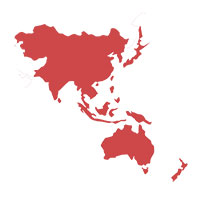Treachery by Japan?
Tim Hall | December 2, 2010.
What’s wrong with Japan? At the opening plenary of the Kyoto protocol negotiations on Monday, Japan said it would never accept a second commitment of the Kyoto Protocol. NGO’s were quick to condemn Kyoto’s home country, with Japan ‘winning’ the infamous Fossil of the Day Award, and today developing nations lashed out at Japan’s stance.
The Kyoto Protocol, the world’s first climate pact, expires at the end of 2012. Negotiations over the last few years have concentrated on forming a new legally binding treaty to succeed Kyoto. Over the last two years however, it has become clear that such a treaty being made before 2012 is unlikely. Attention is now shifting urgently to ensuring that a second commitment period of Kyoto with new promises to cutting emissions is put in place.
This would ensure that climate action continues to move forward, albeit slightly, by still having a legally binding global deal. It is a lesser evil compared to Kyoto expiring and no new Accord being ready.
But Japan, Kyoto’s home, is saying no. It claims, “Japan will not inscribe its target under the KP on any conditions or under any circumstances.”
While it did start the negotiations on a sour note, Japan’s position is not new. Japan was reinforcing this point as late as last week, with the Environmental Ministry claiming, “even if the Kyoto Protocol’s extension becomes a major item on the agenda at Cancun and Japan finds itself isolated over it, Japan will not agree to it.”
Japan does, for the meantime, remain committed to its 25 per cent emission reduction target on 1990 levels by 2020 and 80 per cent by 2050, and for this to be accountable under any future global agreements. Japan will also continue to be part Kyoto talks around future rules and is not expected to block a mandate from this meeting to continue Kyoto negotiations.
Japan is no laggard when it comes to action on climate change. More than 100 experts in Japan are currently engaged in developing sector specific policies and roadmaps to achieve a low-carbon society in such areas as housing and architecture, transportation, regional development, manufacturing and energy systems. Kyoto City itself has also recently announced a municipal ordinance designed to curb greenhouse gas emissions by 25 per cent by 2020 and by 40 per cent by 2030.
So why this seemingly contradictory stance on Kyoto? And is it fair to be attacking Japan so viciously?
Japan’s reasoning is quite simple. Japan believes the focus should be on securing a new global treaty that includes all nations, not an extension of Kyoto – under which the US and China are excluded. Kyoto only covers 27 per cent of all global emissions. If Kyoto was to be continued, the only other major emitters to have new targets imposed, aside from Japan, would be the EU and Australia.
Japan’s move shows its government does not wish to repeat the domestic uproar it experienced in 2001, when despite the US refusing to ratify, Japan went ahead and ratified the treaty. This move angered the business community, the wider constituency and even members within the government. At the following election, the opposition party in Japan made major gains on the government, which found itself with a significantly reduced majority.
Russia and Canada have also doubted the continuation of Kyoto, reflecting similar sentiments to Japan. However the least-developed countries fear that allowing Kyoto to expire would leave them vulnerable to rapid climate change as talks on a new treaty drag on late into the new decade.
As a result, in Cancun and in Japan, pressure is being placed on Japan to change its stance. Tomorrow, on the official day of Young and Future Generations at COP16, Japanese youth along with TckTckTck campaigners are planning lighthearted actions to draw media attention to “love affair between Japan and Kyoto” which is “on the rocks”. Paul Horseman, the TckTckTck Campaign Director, announced that Japan’s “fear of commitment and compliance doesn’t mean the death of the Kyoto Protocol, but isolates the country as parties in Cancun try to negotiate in confidence and good faith.” Meanwhile Friends of the Earth Japan refuted its government, saying that by trying to destroy the Protocol, Japan’s leadership is disgracing itself on the international stage.
With or without Japan, there are at least forty countries, including Australia, the EU and Norway, that are committed to a second period of Kyoto if need be.
Japan should be strongly criticised for its lack of leadership and poor spirit early on in the negotiations. Other countries evading commitments currently under Kyoto, however should not be ignored, and the pursuit of a new effective and legally binding treaty should not be abandoned.
By Tim Hall, photo by Ainhoa Goma via Oxfam.













comment